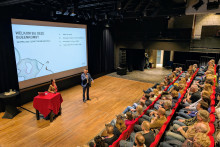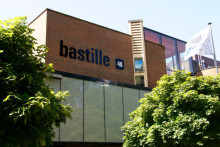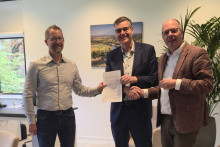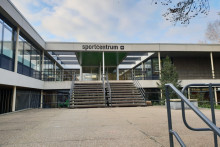Can you tell us what PC3 is?
Jauregui-Becker: ‘I would define PC3 as a business pre-incubator. PC3 aims to offer a program during which potential entrepreneurs from base of the pyramid (BoP) get help from specialists in order to co-create their products - from an initial idea down to a physical prototype with a business plan.PC3 initiative has three main dimensions: research, education and valorization. The project is about uniting the sustainable development, business development and product design with a goal to create an equation which helps people from BoP to become a formal company.’
Franco-Garcia: ‘Sustainability is an important aspect of PC3. We see PC3 as the means to reintegrating people without formal education into the economy and enabling them to rise out from poverty. Moreover, their business ideas will be co-created under criteria that show compliance with environmental and social dimensions; criteria that also allow us to monitor the development of BoP’s competences.’
Groen: ‘PC3 is also based on the experience of VentureLab. We help with the business development side of the project. People at BoP are often very knowledgeable about the issue they are trying to solve, but not about running a business. PC3 is a clear collaboration of different departments of UT – engineering, sustainability science and business science. And together we can create something that really works. At this point, we are still developing the project, but we have connections with India, Brazil, South Africa, Mexico, and also within Netherlands, specifically in Northern Groningen, which is an economically deprived area. Now we want to see if we can apply our program there.’
Why did you decide to start this project?
Jauregui-Becker: ‘People at BoP do not have resources to turn their often innovative ideas into something with economic and social value. Through our research, we found out that there is no real institutional help for these people. The little support given to people at BoP is directed at micro-enterprises. But in developed countries it is small and medium enterprises that are the base of the economic development. So in order to increase economical development, you need to increase the number of small and medium businesses. And the way to do that is to encourage people to be innovative entrepreneurs.’
How does the program work?
Jauregui-Becker: ‘We find inventive people who can possibly create a business. First, they evaluate and develop their ideas. Then they enter the co-creation process – designing the products or technology - and the co-venturing process. They also take part in workshops for personal development. After about 6 months of this program, a small start-up company should be formed.’
Who will be the experts guiding these new entrepreneurs?
Jauregui-Becker: ‘There will be two function developers. One of them focuses on the product design part and the other one on the business aspect. Then there is a separate group of people called coaches, who are real entrepreneurs that are assigned to one company to help it with practical knowledge.’
How is UT involved in PC3?
Franco-Garcia:‘We encourage students to do research on projects with BoP people, i.e., courses of the minor sustainable development in developing countries. We have one PhD student working directly on PC3 project.’
Jauregui-Becker: ‘UT is actively involved in the research behind PC3. We have already gotten several papers published on the topic and some students are doing their bachelor and master theses on different elements of the PC3 project.’
Groen: ‘We provide the scientific background. We will not go to Mexico or Africa and set the centers up, but we will train people to do so. We have the idea and the design, but we cannot do it on our own. If people would like to help - we are currently looking for investors and partners, who could financially support this initiative.’







